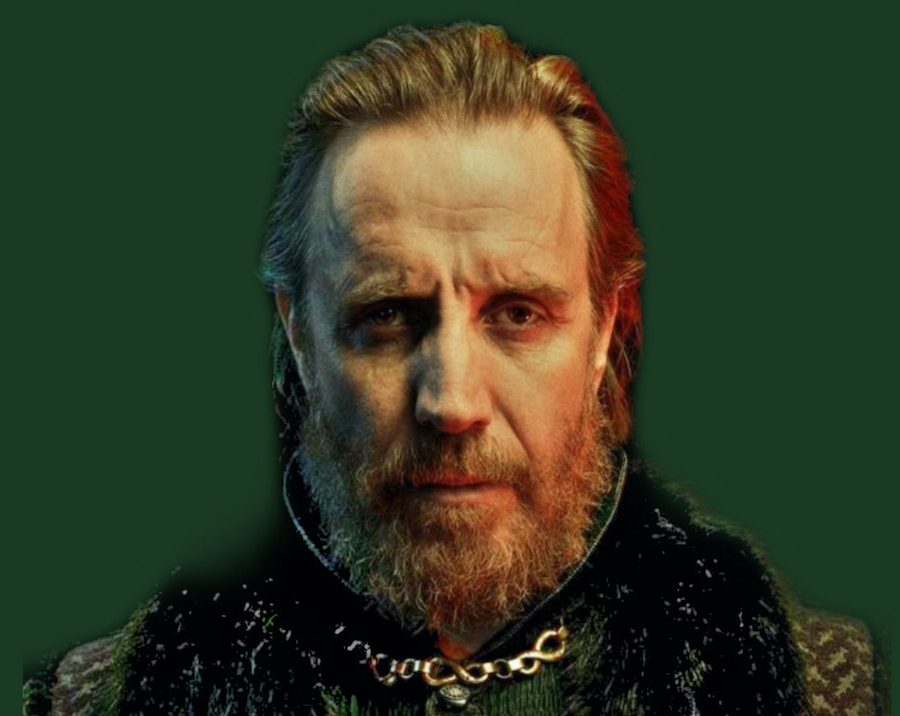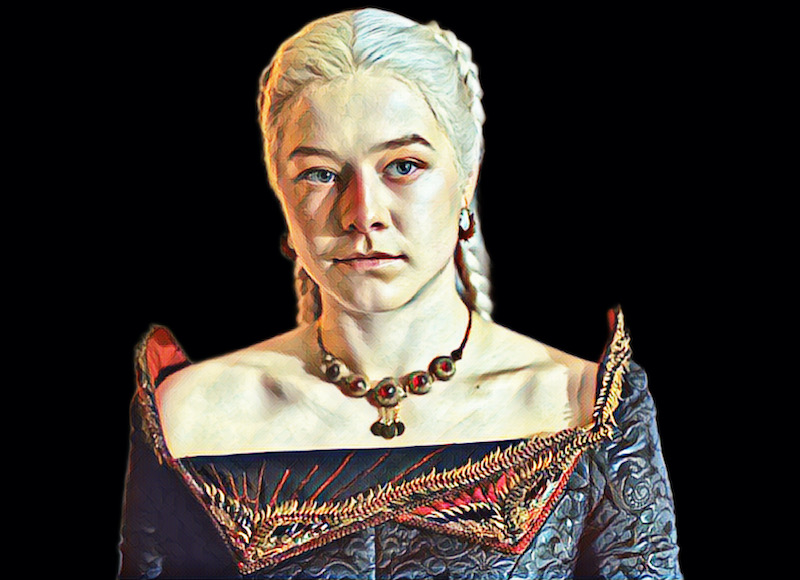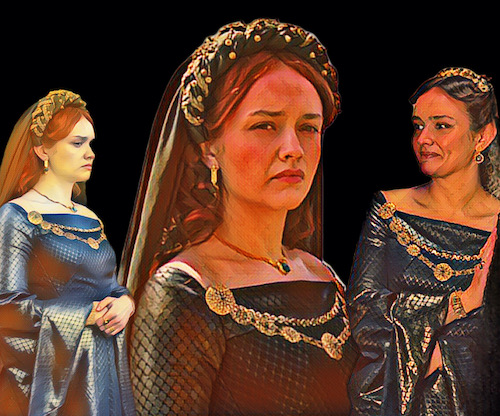If you haven’t already noticed MiscelAnas’ tendency to discuss House of the Dragon, be warned: it will be eight obsessive weeks while it’s on air and a few more after the conclusion, anticipating the already confirmed third season.
The premiere of the second part of the story gained the full support of MAX, worldwide, to the point of causing more discomfort than encouragement. I do not care. And if one thing is clear, it is that if the public chose to root for the blacks, legitimizing Rhaenyra (Emma D’Arcy) as Queen of Westeros, the platform via showrunners seems to lean heavily towards Aegon II’s Greens (Tom Glynn-Carney).

House of the Dragon, the prequel to Game of Thrones, presents a complex political scenario with several factions vying for power, with the “greens” being one of them, which mainly supports Aegon II Targaryen’s claim to the Iron Throne.
In the book Blood and Fire, there is little doubt that it was a coup d’état, led by men who were supporters of a kind of Salic law, in which a woman could not inherit the Crown. They accepted Rhaenyra’s nomination of Viserys I (Paddy Considine) only because she removed Daemon Targaryen (Matt Smith) from the succession. Everyone expected – as it happened – that the King would remarry and have at least ONE male heir, and he fathered three with Alicent Hightower (Olivia Cooke). Therefore, in the first season, we followed all the impasses and problems that Viserys’ decision to keep Rhaenyra as the future queen caused.


The curious thing for fans, even the surprise, is that the series clearly designed its narrative to strengthen the Greens’ cause. If in Game of Thrones the story was less biased, of course, many supported the Starks, but there were (and still are) those who defended the Targaryen restoration. In House of the Dragon, there is less “perfection” in the heiress and less malice among the Hightowers. In other words, there was malice in Otto Hightower (Rhys Iphans), but not so much in Alicent, who genuinely misrepresents or reads the facts differently, but in a somewhat plausible way.
For example, there is effective Legitimacy in Aegon’s claim. According to traditional Targaryen succession laws and customs, a male heir usually takes precedence over a female heir, and as Aegon II was the eldest son of King Viserys I, he could be seen as the rightful heir.



What was against him? The fact that Viserys publicly announced Rhaenyra as his successor and made all the Houses swear fealty to her. The princess was still young and unique at the time, but, despite several opportunities and pressures for the succession order to be changed, the king remained firm in keeping her as the future Queen until the end of his days. As the main organizer of everything, Otto directed the policy silently behind the scenes, without counting on the support or even knowledge of Alicent.
As a result, the Greens have the support of influential houses and important political figures. Notably, the Hightowers, one of the most powerful families, support Aegon’s claim. This alliance significantly strengthens their position because, furthermore, arguably, supporting a male heir can be seen as a way of maintaining stability and continuity in the kingdo,m as it follows a long-standing tradition. This could reduce potential conflicts and power struggles.

Rhaenyra, unlike Aegon II, was personally trained by Viserys for the position while her half-brother lived a path of maternal and grandfather “protection”, but, without being able to be openly considered the successor, indifferent to internal or external policies. Even so, because he was a man, for many, he was the only possible successor.
The role of Queen Alicent Hightower, Aegon’s mother, is crucial to the entire drama. In the book, she is a strong and influential woman who works tirelessly to ensure her son’s advancement. Her dedication and political maneuvering highlight the Greens’ strategic capabilities. In the series, however, Alicent is a complex woman.

Raised to blindly obey her paternal commands, she was Rhaenyra’s childhood friend, but due to her father’s ambition, she is drawn into the “ugly game” of Power. Induced into a marriage of convenience with the widower Viserys, she had an attentive and caring husband, but one who was never in love with her. As his confidant, she knew about her husband’s uncertainties, something the showrunners used to justify many of her decisions.
As a mother, Alicent is far from exemplary and is even indifferent to her children. However, she protects her offspring, including Aegon II. Despite his flaws, he could be molded into a capable leader with the right guidance and support from his advisors and allies, bringing unity and strength to the Targaryen dynasty.
However, left aside, it is full of vices, it is reckless, insecure, and even cruel. He has everything to be a kind of Joffrey Baratheon, more than a Ramsay Bolton. Without exception, from is an antagonist, no matter how tragic his story is.

Central to the civil war known as the Dance of Dragons, which takes place some 200 years before the events of Game of Thrones, he challenges his half-sister for the Iron Throne after the death of his father, Viserys I.
Arrogant and impetuous, we see that he was crowned king against the wishes of his father, who had named Rhaenyra as his heir, but whose meaningless words were understood by Alicent as a statement to the contrary. The series leaves open the fact that Aegon II is a usurper and that he is only considered King because his supporters believe that a man should rule instead of a woman. With Alicent’s confusion, he starts to believe in his “mission,” and everything gets worse because of it.
Aegon II made several controversial decisions throughout his reign. For example, he was responsible for acts of brutality and revenge, including executing prisoners and destroying the property of his enemies. With the death of many dragons, which were symbols of House Targaryen’s power, the war also weakened the family, leaving it vulnerable to future rebellions and conflicts.

A passage that well illustrates the complexity of Aegon II is the description of his coronation in the book, reinforced by images from the series: initially, he hesitates, but later accepts the throne, driven by those around him and the desire for power. His story is an example of how the power struggle can lead to tragedy and devastation.
We meet him again, already convinced that he is truly the King of the Seven Kingdoms, and anyone who goes against his position must die. Even though they humanized the greens, the showrunners of House of the Dragon were unable to convince the “purists” to review their position. After watching the 1st episode of the 2nd season, do you support the Greens or the Blacks?
If you change your mind, it’s MAX’s fault!
Descubra mais sobre
Assine para receber nossas notícias mais recentes por e-mail.
